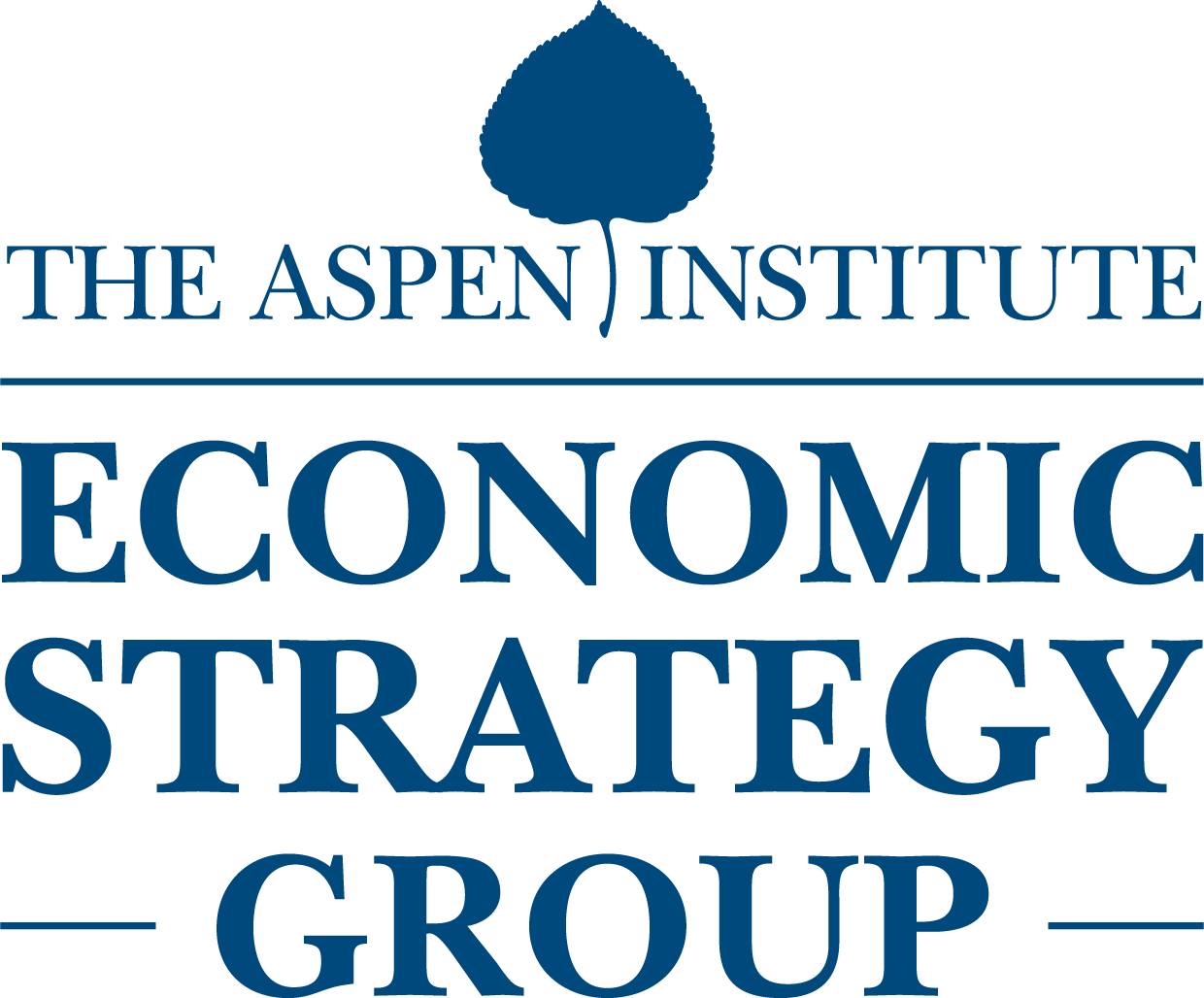
AESG Member Statement on Economic Policy Priorities

Aspen Economic Strategy Group (AESG) Member Statement December 2019
We, the undersigned members of the AESG, have collectively worked at the highest levels of the policy, business, government, academic, and civic communities. We believe that our nation’s economic policies need to be adjusted so that more people participate more fully in our economic success. We believe that this can only be accomplished through effective government, which will require leaders to engage in principled compromise and make decisions grounded in facts and analysis. We call on our nation’s leaders to recognize the following as immediate economic priorities and to develop responsive policy agendas based in sound economic reasoning and evidence:
1. Long-Run Economic Growth. Economic growth is critical to our nation’s continued prosperity and competitiveness in the global economy. It is fostered by increases in productivity and labor force participation. Policy leaders should evaluate economic policies based on their potential impact on long-run growth and on how they strengthen the resilience of our economy in the face of economic fluctuations.
2. Widespread Prosperity. Rising wage and income inequality over the past 50 years in the United States illustrates that economic growth is not sufficient to deliver universal economic prosperity. The public and private sectors need to do more to distribute economic opportunity as widely as possible and, where necessary, supplement the wages of hard-working low and middle income Americans.
3. Robust Market Competition. Fair and robust market competition advances economic innovation and helps growth translate into greater individual welfare. In sectors where there are indications that increased market concentration reflects a reduction in healthy market competition, policymakers should focus on reducing barriers to competitive entry and vigorous enforcement of competition law.
4. A Sound Fiscal Path. Our nation currently faces an unsustainable fiscal trajectory. An unsound fiscal position will preclude adequately funding national priorities, could complicate efforts to respond to future economic challenges, and places a greater economic burden on future generations. Our nation’s elected leaders should work together to stabilize the federal debt, which will require economic growth, new revenues, and reform of entitlement and other spending programs that lowers spending growth while maintaining benefits for low and middle income Americans.
5. Funding for Necessary Investments. Advancing U.S. economic competitiveness and expanding economic opportunity requires investments in our nation’s economic and human potential. This will entail increased expenditures and reforms to educational institutions and programs, as well as spending on physical infrastructure and basic sciences.
Signatories
Kelly Ayotte
Former U.S. Senator from New Hampshire
Ben S. Bernanke
Distinguished Fellow in Residence, Economic Studies Program, Brookings Institution
Erskine Bowles
President Emeritus, The University of North Carolina
Lanhee J. Chen
David and Diane Steffy Fellow in American Public Policy Studies Hoover Institution, Stanford University
Kenneth I. Chenault
Retired CEO and Chairman American Express
James S. Crown
Chairman and CEO Henry Crown and Company
Mitchell E. Daniels, Jr.
President, Purdue University
Diana Farrell
President and CEO, JPMorgan Chase Institute
Laurence D. Fink
Chairman and Chief Executive Officer BlackRock, Inc.
Jason Furman
Professor of the Practice of Economic Policy, John F. Kennedy School of Government, Harvard University
Timothy Geithner
President, Warburg Pincus LLC
Austan Goolsbee
Robert P. Gwinn Professor of Economics, Booth School of Business, The University of Chicago
Danielle C. Gray
SVP, Chief Legal Officer & Corporate Secretary, Blue Cross and Blue Shield of North Carolina
Doug Holtz-Eakin
President, American Action Forum
Glenn Hubbard
Dean Emeritus and Russell L. Carson Professor of Finance and Economics, Columbia Business School
Neel Kashkari
President, Federal Reserve Bank of Minneapolis
Melissa S. Kearney
Neil Moskowitz Professor of Economics, The University of Maryland
Edward P. Lazear
Morris Arnold and Nona Jean Cox Senior Fellow, Hoover Institution; The Davies Family Professor of Economics, Stanford Graduate School of Business
Maya MacGuineas
President, Committee for a Responsible Federal Budget
N. Gregory Mankiw
Robert M. Beren Professor of Economics, Harvard University
Magne Mogstad
Gary S. Becker Professor in Economics and the College, Kenneth C. Griffin Department of Economics University of Chicago
Marc H. Morial
President and CEO, National Urban League
Janet Murguía
President and CEO, UnidosUS
Phebe Novakovic
Chairman and CEO, General Dynamics
Michael A. Nutter
David N. Dinkins Professor of Professional Practice in Urban and Public Affairs, Columbia University School of International and Public Affairs
James Owens
Chairman & CEO Emeritus, Caterpillar Inc.
Henry M. Paulson, Jr.
Chairman, Paulson Institute
Penny Pritzker
Founder and Chairman, PSP Partners
Bruce Reed
CEO & Co-founder, Civic LLC
Robert E. Rubin
Co-Chairman Emeritus, Council on Foreign Relations
Margaret Spellings
President and CEO, Texas 2036
William Spriggs
Chief Economist, AFL-CIO
Robert K. Steel
Chairman, Perella Weinberg Partners
Mark A. Weinberger
Former Chairman and CEO, EY
Tom Wilson
Chair, President and Chief Executive Officer The Allstate Corporation
Janet L. Yellen
Distinguished Fellow in Residence, Brookings Institution
Jeffrey Zients
CEO, The Cranemere Group Limited
Robert Zoellick
Senior Counselor, Brunswick Group